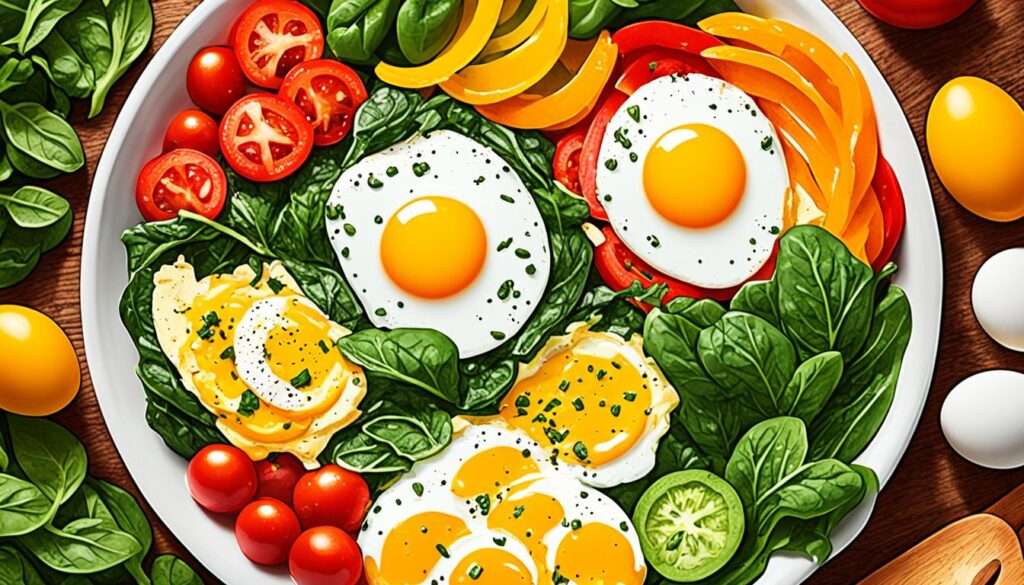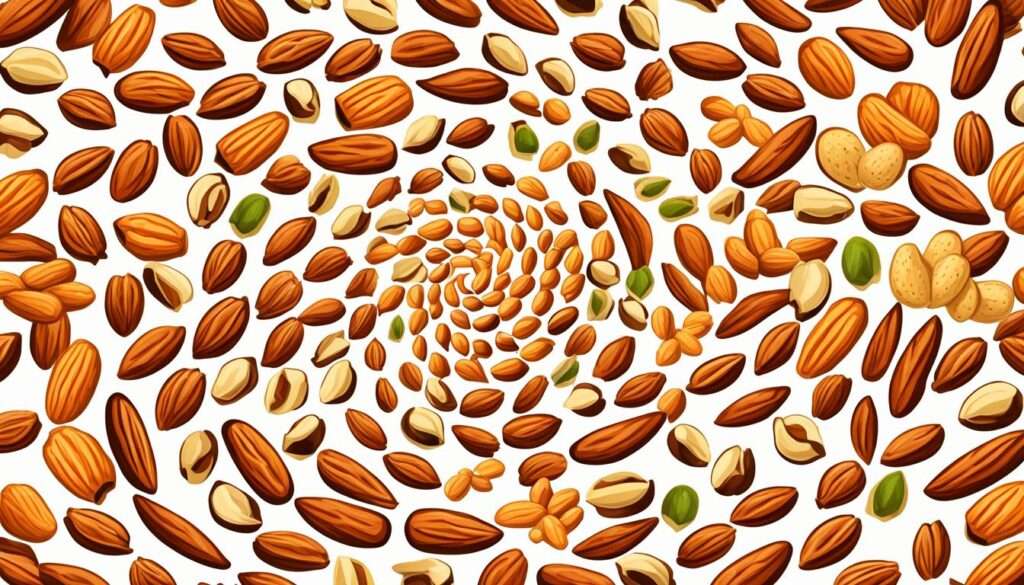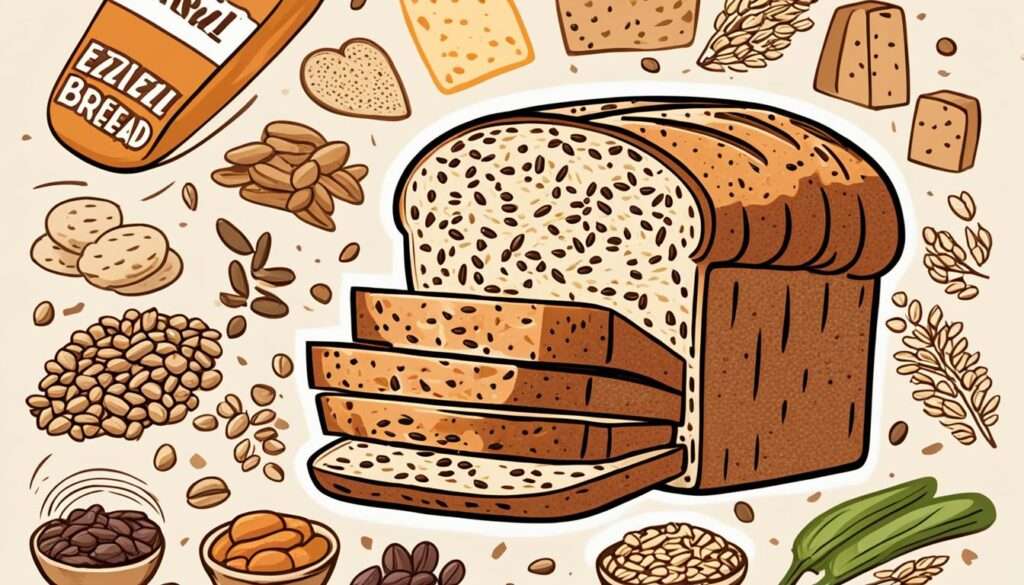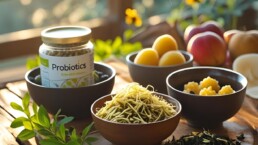Medically reviewed by Dr Chandril Chugh,
Renowned Neurologist and American Trained Specialist
Eating a balanced diet that includes a variety of healthy and nutritious foods is essential for maintaining good health and overall well-being. Your diet should consist of a wide range of fruits, vegetables, whole grains, lean proteins, and healthy fats to ensure that your body receives all the necessary nutrients it needs to function optimally.
Table of Contents
ToggleWhen it comes to creating a balanced diet, it’s important to choose foods that provide a wide array of vitamins, minerals, antioxidants, and other beneficial compounds. By incorporating a diverse range of foods from different food groups, you can ensure that you are meeting your nutritional needs and promoting a healthy lifestyle.
In this article, we have compiled a list of 50 foods that are highly recommended to include in a balanced diet. These foods have been identified by multiple sources as being particularly beneficial for promoting good health and well-being. By incorporating these foods into your daily meals and snacks, you can create a well-rounded eating plan that supports your overall health goals.
Key Takeaways:
- Including a wide variety of nutritious foods in your diet is important for maintaining a balanced diet.
- Choose from a range of fruits and berries to get essential vitamins, minerals, and antioxidants.
- Eggs are a highly nutritious food that provides protein and essential vitamins and minerals.
- Lean meats such as beef, chicken, lamb, and mutton are good sources of protein and essential nutrients.
- Nuts and seeds offer healthy fats, protein, fiber, and various vitamins and minerals.
Fruits and Berries
Incorporating a diverse range of fruits and berries into your diet is an excellent way to ensure you receive a myriad of essential vitamins, minerals, and antioxidants. These nutrient-rich wonders not only add vibrant colors to your plate but also offer numerous health benefits. From satisfying your sweet tooth to supporting your overall well-being, here are some examples of fruits and berries that you can enjoy:
- Apples
- Avocados
- Bananas
- Blueberries
- Oranges
- Strawberries
Additionally, there are many other options to choose from when it comes to these nature’s treats:
- Cherries
- Grapes
- Grapefruit
- Kiwi
- Lemons
- Mangoes
- Melons
- Olives
- Peaches
- Pears
- Pineapples
- Plums
- Raspberries
These delightful fruits and berries are not only delicious but also provide a wide array of nutrients that contribute to a balanced and healthy diet.
| Fruit/Berry | Nutrition |
|---|---|
| Apples | High in fiber and vitamin C. Contains antioxidants. |
| Avocados | Rich in healthy fats, fiber, and various vitamins and minerals. |
| Bananas | High in potassium, vitamin B6, and fiber. |
| Blueberries | Packed with antioxidants and vitamin C. Also a good source of fiber. |
| Oranges | Rich in vitamin C and other essential nutrients. |
| Strawberries | High in antioxidants and vitamin C. Provides fiber and manganese. |
| Cherries | Contain antioxidants and provide anti-inflammatory benefits. |
| Grapes | Rich in antioxidants, vitamin C, and manganese. Also a source of hydration. |
| Grapefruit | High in vitamin C and fiber. Known for its tangy and refreshing flavor. |
| Kiwi | Provides vitamin C, vitamin K, and fiber. Also a good source of antioxidants. |
| Lemons | Packed with vitamin C and antioxidants. Adds a zesty flavor to dishes. |
| Mangoes | Rich in vitamin C, vitamin A, and antioxidants. Offers a tropical sweetness. |
Eggs
Eggs are a highly nutritious food and a good source of protein. They contain essential vitamins and minerals that are beneficial for your overall health. Incorporating eggs into your diet can provide numerous health benefits and contribute to a balanced and nutritious eating plan.
Eggs are a versatile ingredient that can be enjoyed in various ways. You can have them boiled, scrambled, or in omelets, allowing you to customize your meals according to your preferences and taste. Not only are eggs delicious, but they are also quick and easy to prepare, making them ideal for busy individuals looking for a convenient yet nutritious option.
One large egg contains approximately 6 grams of protein, which is essential for supporting muscle growth, repair, and maintenance. Protein is a macronutrient that plays a crucial role in overall health and well-being. It helps stabilize blood sugar levels, promotes satiety, and aids in weight management.
Additionally, eggs offer a spectrum of vitamins and minerals that are vital for various bodily functions. They are rich in vitamins such as vitamin B12, which is essential for maintaining healthy nerve cells and creating DNA, and vitamin D, which is important for bone health and immunity. Eggs also contain minerals like iron, which is necessary for oxygen transport through the body, and selenium, a powerful antioxidant that supports thyroid function and enhances immune response.
Consider incorporating eggs into your meals to boost your protein intake and enjoy their numerous nutrients. Whether you prefer a simple boiled egg for breakfast or an omelet packed with veggies for a satisfying lunch, eggs can be a versatile and nutritious addition to your diet.

| Egg Preparation | Calories | Protein (g) | Carbohydrates (g) | Fat (g) | Vitamin D (mcg) | Vitamin B12 (mcg) | Iron (mg) | Selenium (mcg) |
|---|---|---|---|---|---|---|---|---|
| Boiled (1 large egg) | 78 | 6.3 | 0.6 | 5.3 | 0.9 | 0.6 | 0.9 | 15.4 |
| Scrambled (2 large eggs) | 143 | 13.4 | 1.4 | 9.9 | 1.7 | 1.2 | 1.8 | 37.1 |
| Omelet with vegetables (2 large eggs) | 190 | 16.9 | 4.7 | 11.9 | 2.9 | 2.0 | 2.6 | 54.8 |
Meats
When it comes to including protein sources in your diet, lean beef, chicken breasts, lamb, and mutton are excellent choices. Not only are they packed with protein, but they also provide important nutrients like iron.
Lean beef is a great option for those looking to add protein to their diet while keeping the fat content low. It is rich in essential amino acids and contains important vitamins and minerals.
Chicken breasts are a popular choice for their lean protein content. They are low in fat and high in protein, making them a staple in many meal plans.
Lamb and mutton are flavorful meats that can be enjoyed in various dishes. They are not only rich in protein but also provide essential nutrients needed for overall health.
If you’re looking for variety in your protein sources while ensuring you get the essential nutrients your body needs, consider including lean beef, chicken breasts, lamb, and mutton in your meals.
| Meat | Protein Content (per 100g) | Iron Content (per 100g) |
|---|---|---|
| Lean Beef | 26g | 2.3mg |
| Chicken Breasts | 31g | 0.9mg |
| Lamb | 25g | 1.6mg |
| Mutton | 26g | 1.4mg |
Nuts and Seeds
Nuts and seeds are not only delicious but also highly nutritious. They provide a variety of health benefits and can be an excellent addition to a balanced diet.
Here are some examples of nuts and seeds that you can include in your diet:
| Nuts | Seeds |
|---|---|
| Almonds | Chia seeds |
| Coconuts | Macadamia nuts |
| Walnuts |
Nuts and seeds are packed with healthy fats, fiber, protein, and various vitamins and minerals. They can help improve heart health, promote weight management, and support overall well-being.
Almonds, for example, are an excellent source of vitamin E, magnesium, and antioxidants. Chia seeds are rich in omega-3 fatty acids, fiber, and minerals like calcium and iron. Coconuts contain medium-chain triglycerides (MCTs), which can provide a quick source of energy. Macadamia nuts are high in monounsaturated fats and may help lower cholesterol levels. Lastly, walnuts are a great source of omega-3 fatty acids and can support brain health.

Including a variety of nuts and seeds in your diet can add flavor and texture to meals and snacks while boosting your nutritional intake. They can be enjoyed on their own as a snack, sprinkled onto salads or yogurt, or used as ingredients in baking and cooking.
Vegetables
Including a variety of vegetables in your diet is important for getting essential nutrients. Some examples of healthy vegetables to include are asparagus, bell peppers, broccoli, carrots, cauliflower, cucumbers, garlic, kale, onions, and tomatoes. These vegetables are not only delicious but also packed with vitamins, minerals, and fiber.
Asparagus: Asparagus is a versatile vegetable that can be grilled, roasted, or steamed. It is a good source of folate, vitamin K, and fiber, and provides antioxidant properties.
Bell Peppers: Bell peppers are available in various colors and add a sweet and crunchy element to your meals. They are rich in vitamin C, vitamin A, and antioxidants.
Broccoli: Broccoli is a cruciferous vegetable that is high in fiber, vitamin C, and vitamin K. It can be enjoyed raw, steamed, or stir-fried.
Carrots: Carrots are known for their high content of beta-carotene, which is converted into vitamin A in the body. They are also a good source of fiber.
Cauliflower: Cauliflower is a versatile vegetable that can be used as a low-carb substitute for rice or mashed potatoes. It is rich in vitamin C, vitamin K, and antioxidants.
Cucumbers: Cucumbers are hydrating and refreshing. They are low in calories and a good source of vitamin K, vitamin C, and antioxidants.
Garlic: Garlic has been used for centuries for its medicinal properties. It adds flavor to dishes and may have antibacterial and immune-boosting effects.
Kale: Kale is a nutrient-dense leafy green vegetable that is high in vitamins A, C, and K. It can be used in salads, smoothies, or sautéed.
Onions: Onions are a staple ingredient in many cuisines and add flavor to a wide variety of dishes. They are also rich in antioxidants and have anti-inflammatory properties.
Tomatoes: Tomatoes are a versatile fruit that can be enjoyed raw, cooked, or used in sauces. They are an excellent source of vitamin C, potassium, and lycopene, a powerful antioxidant.
Include these vegetables in your meals to enhance the nutritional quality of your diet and enjoy their delicious flavors.
Fish and Seafood
Fish and seafood are rich in omega-3 fatty acids and other nutrients, making them an important part of a balanced diet. Including a variety of fish and seafood in your meals can provide numerous health benefits. Some examples of healthy options that you can consider adding to your diet include:
- Salmon
- Sardines
- Shellfish
- Shrimp
- Trout
- Tuna
These fish and seafood options are not only delicious, but they also offer a wide range of essential nutrients. Salmon is packed with omega-3 fatty acids, which promote heart health and reduce inflammation. Sardines are an excellent source of calcium, which strengthens bones and teeth. Shellfish, such as clams and mussels, are rich in iron and zinc, which support a healthy immune system. Shrimp is low in calories and high in protein, making it a great choice for weight management. Trout provides vitamin D, which is important for strong bones. Finally, tuna is a lean source of protein that is also high in omega-3 fatty acids.
When purchasing fish and seafood, it is important to choose responsibly sourced options to minimize environmental impact. Look for sustainable fishing practices and certifications that ensure the products are ethically and environmentally produced.

Adding fish and seafood to your diet can provide an array of nutrients and contribute to overall health and wellness. Whether you enjoy grilled salmon, a shrimp stir-fry, or a tuna salad, there are countless delicious ways to incorporate these nutritious options into your meals.
| Benefits of Fish and Seafood | Sources |
|---|---|
| Packed with omega-3 fatty acids | https://www.heart.org/en/healthy-living/healthy-eating/eat-smart/nutrition-basics/fish-and-omega-3-fatty-acids |
| Excellent source of calcium | https://ods.od.nih.gov/factsheets/Calcium-Consumer/ |
| Rich in iron and zinc | https://www.ncbi.nlm.nih.gov/books/NBK537084/ |
| Low in calories, high in protein | https://www.sciencedirect.com/science/article/pii/S2352289520301894 |
| Provides vitamin D | https://ods.od.nih.gov/factsheets/VitaminD-Consumer/ |
| Lean source of protein and omega-3 fatty acids | https://www.heart.org/en/healthy-living/healthy-eating/eat-smart/fats/fish-and-omega-3-fatty-acids |
Grains
Whole grains are an essential part of a balanced diet, providing a rich source of fiber and other important nutrients. Incorporating grains like brown rice, oats, and quinoa into your meals can offer numerous health benefits.
Brown rice is a versatile grain that can be enjoyed as a side dish or as the base for stir-fries and grain bowls. It is packed with fiber, minerals, and antioxidants that support heart health and aid in digestion.
Oats are a popular breakfast staple, known for their high fiber content and ability to help regulate blood sugar levels. They can be enjoyed as oatmeal, added to smoothies, or used in baking recipes.
Quinoa is a complete protein and an excellent choice for vegetarians and vegans. It is gluten-free and provides a good amount of fiber, iron, and magnesium. Quinoa can be used as a substitute for rice or couscous, or added to salads and soups.
| Grain | Nutritional Benefits |
|---|---|
| Brown Rice | High in fiber, supports heart health, aids digestion |
| Oats | Rich in fiber, helps regulate blood sugar levels |
| Quinoa | Complete protein, gluten-free, good source of fiber, iron, and magnesium |
Breads
When it comes to bread, there are several options to consider for a balanced diet. One popular choice is Ezekiel bread, known for its nutritional benefits. Made from sprouted grains, legumes, and seeds, Ezekiel bread offers a good source of protein, fiber, and various vitamins and minerals. It is a great alternative to conventional bread options.
If you’re looking for low-carb bread, consider making your own at home. Homemade low-carb bread allows you to control the ingredients and customize it to your preferences. You can find a variety of recipes online that cater to different dietary restrictions and preferences, ensuring you can enjoy bread while maintaining a low-carb lifestyle.
Similarly, if you follow a gluten-free diet, homemade gluten-free bread is a fantastic option. By making your own bread at home, you can ensure it is free from gluten and other allergens, while still enjoying the taste and texture of bread. There are numerous gluten-free bread recipes available online that utilize alternative flours like almond flour or coconut flour.
Comparative Table of Breads
| Bread Type | Nutritional Benefits | Recommended for |
|---|---|---|
| Ezekiel Bread | High in protein, fiber, and various vitamins and minerals | Individuals seeking a nutritious bread option |
| Homemade Low-Carb Bread | Low in carbohydrates, customizable ingredients | People following a low-carb lifestyle |
| Homemade Gluten-Free Bread | Free from gluten and other allergens | Individuals with gluten intolerance or celiac disease |

Legumes
Legumes, such as green beans, kidney beans, lentils, and peanuts, are highly nutritious and versatile plant-based foods that can be incorporated into a balanced diet. They provide a rich source of protein, iron, and fiber. Adding legumes to your meals can help you meet your nutritional needs while diversifying your food choices.
Green Beans
Green beans are a type of legume that are commonly consumed as a vegetable. They are low in calories and high in nutrients, including vitamin C, vitamin K, and dietary fiber. Whether cooked as a side dish, added to salads, or included in stir-fries, green beans can add color, crunch, and nutritional value to your meals.
Kidney Beans
Kidney beans are a staple legume in many cuisines around the world. They are a great source of plant-based protein, dietary fiber, and essential minerals such as iron and potassium. Kidney beans can be used in a variety of dishes, including soups, stews, chili, salads, and bean spreads.
Lentils
Lentils are small, lens-shaped legumes that come in various colors, including green, brown, red, and black. They are rich in protein, fiber, folate, and other essential nutrients. Lentils can be used in a variety of dishes, from soups and curries to salads and grain bowls, providing a hearty and nutritious addition to your meals.
Peanuts
Peanuts, although technically a legume, are often considered and consumed as nuts due to their taste and nutrition profile. They are a good source of plant-based protein, healthy fats, vitamins, and minerals. Enjoy peanuts as a snack on their own, in nut butter form, or as an ingredient in various dishes, such as salads, stir-fries, and desserts.
| Legume | Nutritional Benefits |
|---|---|
| Green Beans | High in fiber, vitamin C, and vitamin K |
| Kidney Beans | Excellent source of plant-based protein and iron |
| Lentils | Rich in protein, fiber, and essential minerals |
| Peanuts | Good source of protein, healthy fats, and vitamins |
Conclusion
Achieving a balanced diet and practicing healthy eating habits is essential for overall well-being. By including a variety of nutritious foods from different food groups, you can create a well-rounded eating plan that provides your body with essential nutrients.
Throughout this article, we have explored 50 foods that are beneficial to include in a balanced diet. These foods, ranging from fruits and vegetables to lean proteins, nuts, and whole grains, offer a diverse array of vitamins, minerals, fiber, and other vital nutrients.
Remember, the key to maintaining a healthy lifestyle is not just to focus on individual foods, but to ensure a balanced combination of them all. Strive for a variety of colors, tastes, and textures in your meals, incorporating different food groups regularly.
While this article provides valuable information, it is important to consult with a healthcare professional or registered dietitian for personalized dietary recommendations. They can provide guidance based on your specific needs, preferences, and any underlying health conditions you may have.
FAQ
What are some foods to include in a balanced diet?
Eating a wide variety of nutritious foods, including fruit, vegetables, nuts, seeds, lean protein, whole grains, and legumes, is important for a balanced diet.
Can you give examples of healthy fruits and berries?
Some examples of healthy fruits and berries to include in your diet are apples, avocados, bananas, blueberries, oranges, strawberries, cherries, grapes, grapefruit, kiwi, lemons, mangoes, melons, olives, peaches, pears, pineapples, plums, and raspberries.
How can eggs be a part of a healthy diet?
Eggs are a highly nutritious food and a good source of protein. They contain essential vitamins and minerals and can be enjoyed in various ways, such as boiled, scrambled, or in omelets.
Which meats can be included in a healthy diet?
Lean beef, chicken breasts, lamb, and mutton are all examples of meats that can be included in a healthy diet. They are good sources of protein, iron, and other essential nutrients.
What are some nutritious nuts and seeds?
Nuts and seeds are nutritious and can provide healthy fats, protein, fiber, and various vitamins and minerals. Some examples include almonds, chia seeds, coconuts, macadamia nuts, and walnuts.
What are some examples of healthy vegetables?
Including a variety of vegetables in your diet is important for getting essential nutrients. Some examples of healthy vegetables to include are asparagus, bell peppers, broccoli, carrots, cauliflower, cucumbers, garlic, kale, onions, and tomatoes.
Which fish and seafood options are the healthiest?
Fish and seafood are rich in omega-3 fatty acids and other nutrients. Examples of healthy options include salmon, sardines, shellfish, shrimp, trout, and tuna. It is important to choose responsibly sourced fish and seafood.
What are some nutritious whole grains?
Whole grains, such as brown rice, oats, and quinoa, are a good source of fiber and other nutrients. They can be included in a balanced diet to provide energy and promote digestive health.
What are some options for healthier bread?
When choosing bread, opt for whole grain options like Ezekiel bread. If you’re looking for low-carb or gluten-free breads, consider making your own using recipes available online.
Can legumes be included in a balanced diet?
Yes, legumes such as green beans, kidney beans, lentils, and peanuts are a good plant-based source of protein, iron, and fiber. They can be included in a balanced diet to provide essential nutrients.
How can I create a well-rounded and healthy eating plan?
By including a variety of nutritious foods from different food groups, such as fruits, vegetables, lean meats, nuts, seeds, whole grains, and legumes, you can create a well-rounded and healthy eating plan that promotes overall health and well-being. Remember to consult with a healthcare professional or registered dietitian for personalized dietary recommendations.
Source Links

This article is medically reviewed by Dr. Chandril Chugh, Board-Certified Neurologist, providing expert insights and reliable health information.
Dr. Chandril Chugh is a U.S.-trained neurologist with over a decade of experience. Known for his compassionate care, he specializes in treating neurological conditions such as migraines, epilepsy, and Parkinson’s disease. Dr. Chugh is highly regarded for his patient-centered approach and dedication to providing personalized care.




